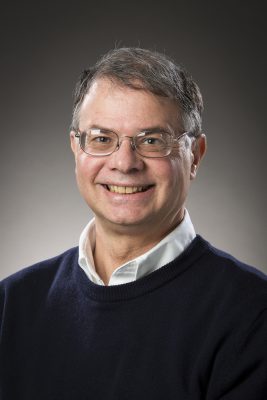
Manufacturing for Good – Experiences in Bangladesh
Date: February 14, 2025; Time: 2:30 PM Location: PWEB 175
Abstract: This seminar will describe design and manufacturing activities that are part of USAID’s $27MM, 6.5-year CSISA-MEA (Cereal Systems Initiative for South Asia – Mechanization Extension Activity). The goal of this project is to improve the agricultural mechanization and agricultural-based light engineering companies in Bangladesh, thereby improving the lives of millions of people who depend on agriculture for their livelihoods. The objectives of the CSISA-MEA project will be presented, its impact on Bangladesh, examples of the various activities, – training, women, machinery design and fabrication, factory design, foundries, materials processing, energy and the environment – and finally a deep dive into rice seedling transplantation and the proposed improved manufacturing processes for a critical spare part for the rice transplanter – its plucking fork.
Biographical Sketch: Prof. Jonathan Colton holds the Eugene C. Gwaltney, Jr. Professorship in Manufacturing and is Professor of Mechanical Engineering, of Industrial Design, and of International Affairs at Georgia Tech. He received his S.B., S.M., and Ph.D. in Mechanical Engineering from Massachusetts Institute of Technology. His research and teaching interests are at the intersections of global/international development and design and manufacturing. Dr. Colton directs the Georgia Tech -U.S. Department of State Diplomacy Lab. For over a decade, he served as a member of the World Health Organization’s Immunization Practices Advisory Committee. He led an international team that designed a Net-Zero Energy Warehouse for Drugs and Vaccines in Tunis for the government of Tunisia that was funded by the Gates Foundation. In 2013-2024, Prof. Colton served as a U.S. Department of State Jefferson Science Fellow at the USAID Bureau for Food Security where he supported the scaling up of agricultural technologies in the Feed the Future program. He currently helps to lead the USAID-funded CSISA-MEA (Cereal Systems Initiative for South Asia – Mechanization Extension Activity), a $27 million project to increase agricultural mechanization and manufacturing capacities in Bangladesh. Prof. Colton’s composites research studies the design and fabrication of the next generation of aircraft with emphasis on continuous fiber reinforced materials and the conversion of post-industrial use materials for high performance transportation usage. A current Department of Energy project seeks to apply machine learning and artificial intelligence to reduce the energy required to cure advanced aerospace thermosetting composite structures, such as airplane wings, airframes and wind mill blades. His research has been funded by NSF, NIH, US CDC, TRW, United Technologies, Lockheed Martin, Boeing, U.S. Navy, Westinghouse, Ford, General Motors, General Electric, Philips Petroleum, NIST, NATO, Schlumberger, Gates Foundation, NASA, and Kodak, among others.